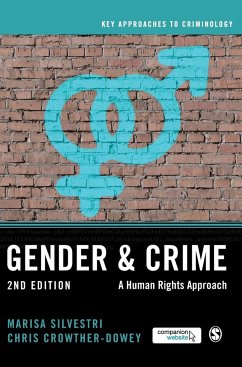Gender & Crime: A Human Rights Approach is not merely another book on criminology. It is also a necessary stocktaking of the evolution of gender issues within human rights policies and the general economic, political, social and cultural contexts of Britain, Europe and worldwide.
Besides providing insight into the relevance of studying human rights and criminology, feminist critique and the global and local political agenda on gender issues, this book brings the added value of reminding the public about the real challenges to gender discrimination in the criminal justice system. It thus informs and better equips the next generation of practitioners, currently students, or all other policymakers who read it.
Therefore, I dare say that this book is not only a must-read, but also a must-keep.
Gabriela-Mihaela Ivan-Cucu, New Journal of European Criminal Law
Besides providing insight into the relevance of studying human rights and criminology, feminist critique and the global and local political agenda on gender issues, this book brings the added value of reminding the public about the real challenges to gender discrimination in the criminal justice system. It thus informs and better equips the next generation of practitioners, currently students, or all other policymakers who read it.
Therefore, I dare say that this book is not only a must-read, but also a must-keep.
Gabriela-Mihaela Ivan-Cucu, New Journal of European Criminal Law








